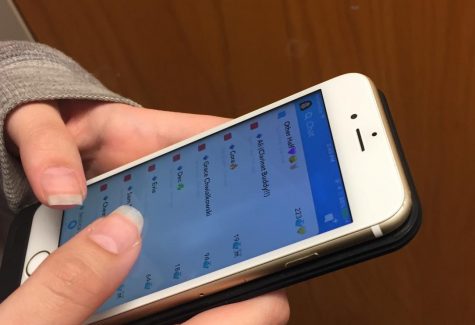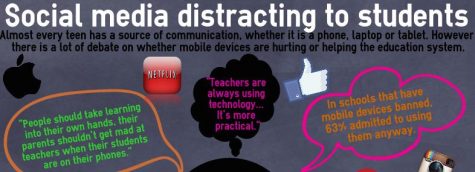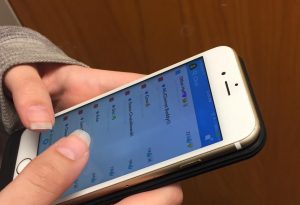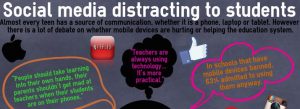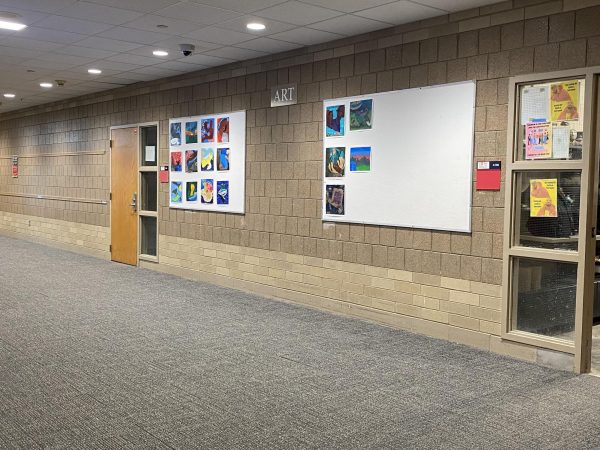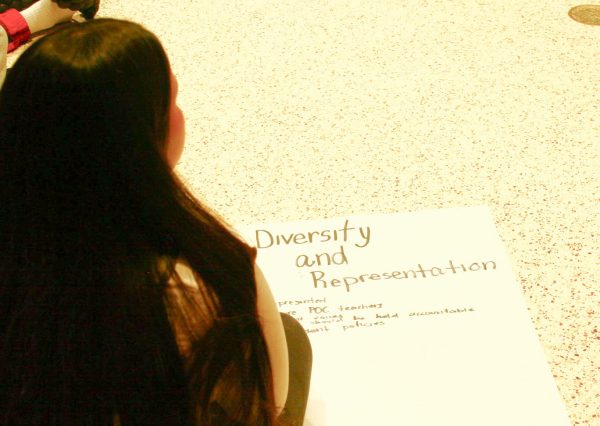Stricter cell phone policies implemented this fall
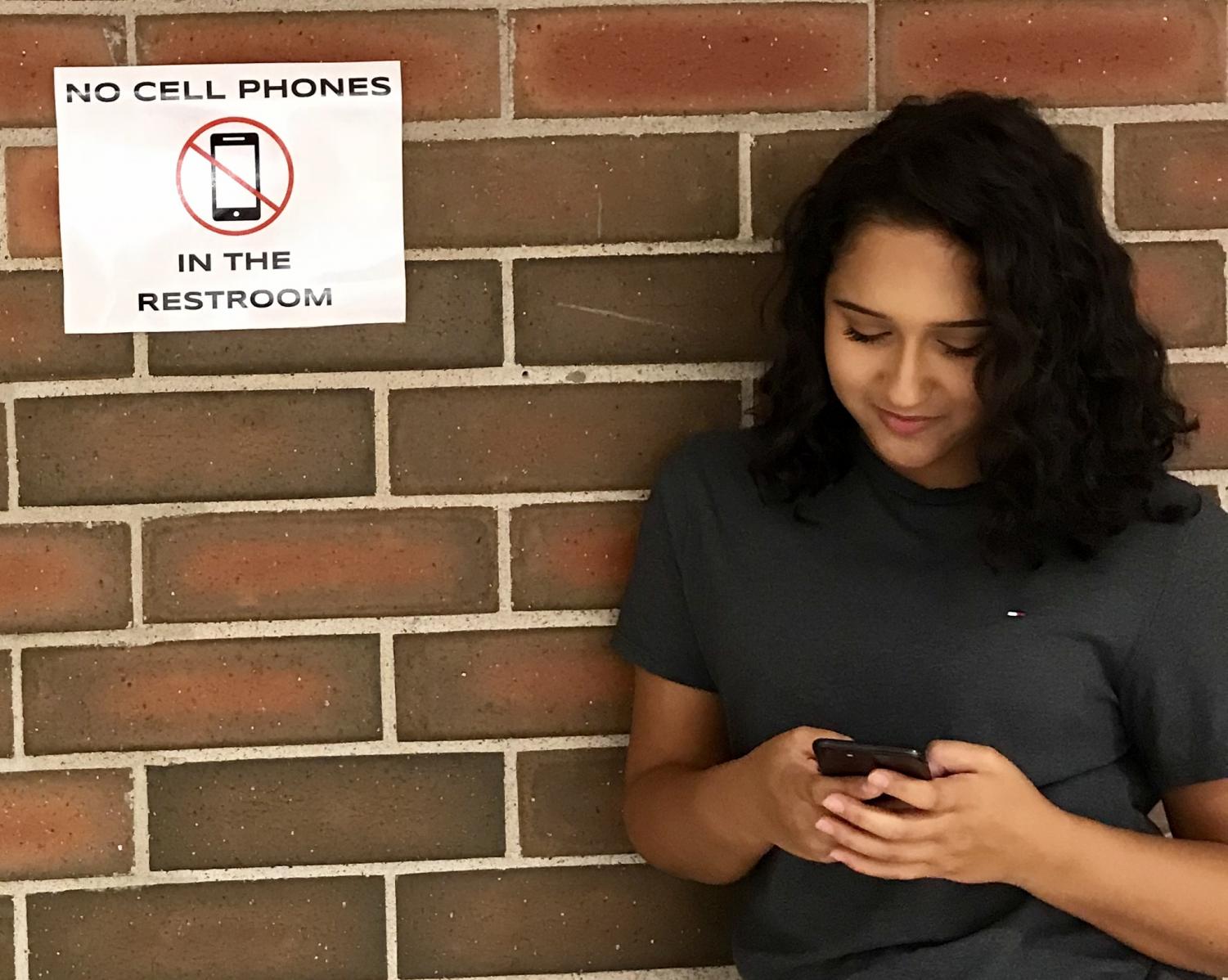
Junior Maleka Hussein stands in front of “no cell phones in the restroom” sign after exiting the ladies restroom. The new policy states cell phones should not be on students’ person during the school day.
This last fall, administration updated and changed the cell phone policy. Students are only allowed to have their phones on them in passing time, lunch, before and after school and when it serves a purpose in the classroom. Using them otherwise results in punishments that become more extreme over time.
Since the cell phone policy has been implemented, students have become more engaged, focused and willing to learn, rather than being on their cellular devices. If the cell phone policy can continue to be followed, it could be very beneficial to many students and the overall environment at school.
Students and faculty are torn on their standings when it comes to the phone policy. Students and staff both said that they personally did not like it, but for educational purposes, they felt it would improve their focus on school.
“I think [the policy] is put together with some freedom for students,” Assistant Principal and creator of the new cell phone policy, Matt Kraft said, who stands by the policy. Students are still allowed to use cell phones at school, just during designated times. Administration acknowledges that cell phones are necessary for safety both in and around school grounds and can pose an educational value in certain situations.
Science teacher Ben Straka said although the policy is based on good science, “Distractions are part of life, it’s going to be making mistakes that make us learn, what you can do, and know how best to get around those distractions.” Straka added that he understands that scientific research has contributed to the new guidelines, he also believes that students deserve a break after all their classwork is done.
“I personally don’t like it but I think it’ll help people in school,” junior Maleka Hussein said. She added, “I do think it’ll be effective because we won’t be constantly distracted by it and constantly looking at it.”
I personally don’t like it but I think it’ll help people in school.
— Maleka Hussein
Kraft sided with confirmed scientific research, “We know that these cell phones are designed to want you to be checking them constantly.” He added, “Young adults before their brain is fully developed and fully functional in terms of decisions may struggle a bit in the area of self control.”
Cell phones have shown to increase stress levels in men and women. In a study conducted in 2011 by the University of Gothenburg, Sweden, their research concluded that both men and women who had a high cell phone use were associated with depression, sleep disturbances and high stress levels.
Scientific research shows that cell phones can actually be physically harmful to people. A study showed that because cell phone screens are so much smaller than computers, it causes people to strain their eyes when looking at them which causes eye vision problems. With the new cell phone policy, the amount of time looking at screens is decreased and lowers the chance of eye issues.
The new policy is something students are going to have to get used to. The whole school is in a transition period but students are realizing the policy is really not so bad and something they need to take seriously. There’s no way to guarantee effectiveness, but if the policy can be successful then hopefully school will become easier in all aspects for students.

Hi! My name is Paige Speedling, I am a junior this year and I am a distribution reporter for Pony Express. My favorite sport is horseback riding and I...


